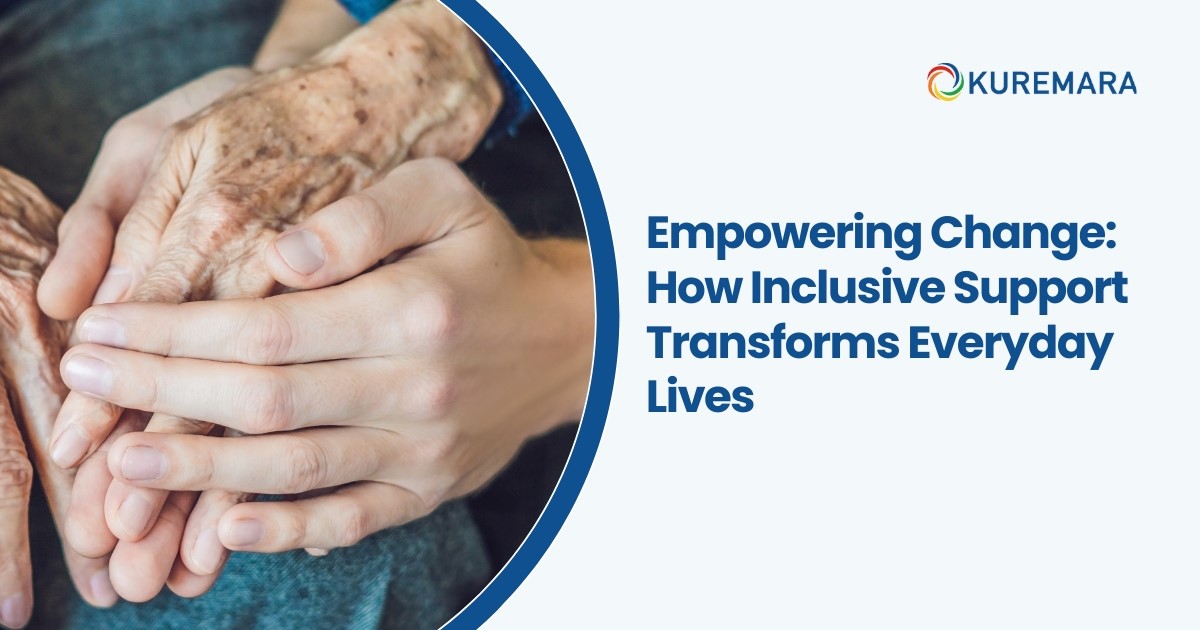Sydney is a city full of life, diversity, and opportunity, a place where every person, regardless of ability, deserves to live confidently and independently. For people living with disabilities, access to quality care and inclusive community support can make all the difference in achieving that independence.
Over the past decade, Australia’s National Disability Insurance Scheme (NDIS) has reshaped the way support is delivered, putting participants at the centre of decision-making. Across Sydney, this shift has created a network of dedicated professionals and organisations that are not only meeting needs but also transforming lives.
The Essence of Person-Centred Care
At the heart of disability support lies one essential principle: person-centred care. It means seeing every individual as unique, with their own aspirations, strengths, and goals.
Instead of providing one-size-fits-all solutions, modern disability care empowers participants to choose the type of support that best fits their lifestyle. Whether that involves daily living assistance, therapy, or community participation, each plan is designed to enhance independence, confidence, and inclusion.
When participants are given control over their care, they move from being passive recipients to active decision-makers, leading to greater satisfaction and better long-term outcomes.
Why Sydney Stands Out in Disability Inclusion
Sydney has long been recognised as one of Australia’s most progressive cities for accessibility and inclusion. From its transport infrastructure to its cultural programs, the city continuously invests in making public spaces welcoming for everyone.
Local councils, community groups, and service providers collaborate to deliver programs that encourage participation, skill-building, and social connection. From adaptive sports to creative workshops, these initiatives open doors to new experiences and friendships.
For individuals and families seeking structured, reliable, and compassionate care, working with a registered ndis provider sydney ensures access to local knowledge, compliance expertise, and tailored services aligned with NDIS standards.
Building Confidence Through Daily Living Support
For many participants, the journey toward independence begins with mastering everyday activities. Support workers play a vital role in helping individuals gain confidence through personalised assistance, not by doing everything for them, but by guiding them to do more for themselves.
Examples of Daily Living Support Include:
- Personal care such as grooming, dressing, and hygiene.
- Meal preparation and nutrition support.
- Household management, including cleaning and organisation.
- Time management, budgeting, and daily planning.
Each small success, cooking a meal, managing a schedule, or completing a task becomes a stepping stone toward greater independence.
The Role of Therapy and Allied Health
Beyond physical assistance, allied health professionals such as physiotherapists, occupational therapists, psychologists, and speech pathologists play an essential role in improving overall well-being.
Their work goes beyond therapy sessions; they help participants develop communication skills, manage emotional challenges, and build routines that support long-term growth.
Sydney’s healthcare ecosystem makes these services more accessible than ever integrating medical expertise with community-based support that nurtures both body and mind.
Supporting Mental and Emotional Wellbeing
Living with a disability often comes with emotional and psychological challenges that deserve equal attention. Anxiety, depression, and isolation can sometimes accompany physical or cognitive barriers.
Modern support frameworks address this by including mental health strategies within broader care plans. Whether it’s counselling, peer support, or group therapy, participants are encouraged to express themselves freely and build resilience through open communication.
Holistic care recognises that emotional wellness is just as important as physical support and both must work together to create a balanced, fulfilling life.
The Importance of Social and Community Connection
Humans are social beings and for people with disabilities, community connection is key to building confidence and belonging. Social participation reduces loneliness, enhances communication, and helps individuals discover their passions.
Common Community Activities in Sydney Include:
- Group excursions to local parks, beaches, and museums.
- Art, music, and creative expression programs.
- Sports, fitness, and adaptive recreation activities.
- Volunteering opportunities that foster purpose and engagement.
Social inclusion programs not only enrich lives but also educate the broader community, promoting understanding and acceptance.
Participants supported through disability services sydney have increasing access to inclusive programs that promote connection and personal growth ensuring no one is left behind in the city’s vibrant social fabric.
How Technology is Changing the Future of Support
Technology has become a powerful ally in delivering more effective and flexible disability care. From mobile apps and assistive devices to virtual consultations, innovation continues to make life easier and more independent.
Examples of Modern Innovations:
- Smart Home Technology: Automated lighting, temperature control, and safety systems enhance comfort and independence.
- Telehealth Platforms: Enable participants to access therapy and medical advice remotely.
- NDIS Portals and Apps: Simplify communication, scheduling, and progress tracking.
- Wearable Devices: Monitor health metrics and promote personal safety.
By embracing these innovations, participants gain more control over their routines and achieve greater autonomy in daily life.
The Role of Families and Carers
Behind every participant’s success is a network of dedicated families and carers. Their ongoing encouragement, patience, and advocacy make a significant difference in how support is delivered and received.
However, the emotional and physical demands of caregiving can be overwhelming. That’s why professional support services are designed not only for participants but also to provide relief and reassurance for families.
Respite care, short-term accommodation, and flexible scheduling options allow carers to recharge while ensuring their loved ones continue to receive high-quality care.
When families and service providers collaborate, the participant benefits from a consistent, compassionate, and well-coordinated support network.
Inclusivity in Employment and Education
True inclusion extends beyond personal care it includes equal opportunities in work and education. Across Sydney, various organisations partner with training programs and employers to help participants gain valuable skills and enter the workforce with confidence.
Benefits of Inclusive Employment:
- Builds independence and financial stability.
- Enhances self-worth and purpose.
- Encourages diversity and equality in workplaces.
NDIS funding can also support training, skill development, and job coaching, enabling individuals to pursue meaningful careers and contribute to their communities.
Building a City for Everyone
Sydney’s growing network of accessible infrastructure and inclusive policies continues to make it one of the most disability-friendly cities in Australia. Public spaces, transport systems, and community centres are being redesigned to ensure everyone can participate equally.
The goal is not just to provide access but to create belonging. Every ramp, hearing loop, and accessible toilet represents more than convenience; it represents respect.
When accessibility becomes the norm, inclusion follows naturally.
The Future of Disability Support in Sydney
As awareness grows, the future of disability support in Sydney looks brighter than ever. Collaboration between the government, providers, and the community is paving the way for innovation, flexibility, and compassion.
We can expect to see continued advancements in digital tools, mental health integration, and cross-sector partnerships all designed to enhance participant outcomes.
But the most important progress comes from changing mindsets: understanding that disability support is not about limitation but about possibility.
Conclusion
Empowerment doesn’t happen overnight; it’s built through small victories, compassionate care, and meaningful connections. Every day, individuals across Sydney are achieving greater independence thanks to inclusive, person-centred support.
From reliable home care and therapy to social inclusion and skill-building programs, the city’s disability network is helping people realise their full potential.
By continuing to prioritise accessibility, dignity, and collaboration, Sydney is shaping a community where every person, regardless of ability, has the chance to live, work, and belong.
Because inclusion isn’t just an ideal; it’s the foundation of a truly thriving city.











